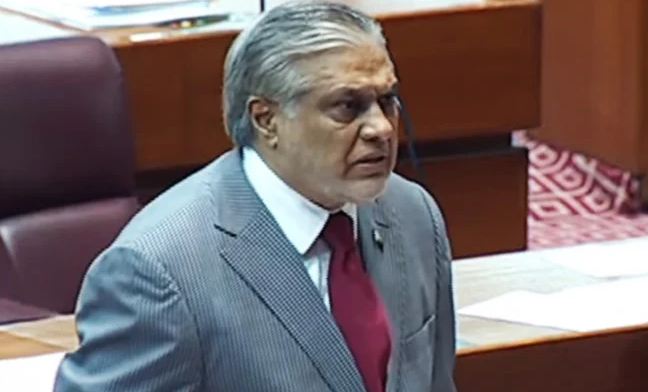ISLAMABAD, JUL 21: Finance Minister Ishaq Dar Thursday assured that the coalition government — which has taken stern measures, increasing the burden on the masses — had no plans of imposing new taxes on agriculture and real estate sectors.
“I want to state categorically […] that no new tax will be imposed on agriculture or real estate. We have endured much pain in meeting the IMF’s conditions,” Dar said on the floor of the National Assembly.
The International Monetary Fund’s (IMF) board approved a $3 billion bailout programme for Pakistan, of which $1.2 billion was immediately disbursed, helping the South Asian nation’s ailing economy to stabilise.
Media reports suggested that the IMF had asked the government for a plan to impose taxes on the real estate and agricultural sectors — to release the remaining amount.
Dar said the people related to the agriculture sector — for which the government expanded the loan volume from Rs1,800 to Rs2,250 billion in the budget — were concerned over the reports.
He added that all prior actions laid down by the lender had been completed, and the agreement with the IMF was done in a “transparent” manner.
“No further burden will be passed on to the people. All the commitments made with the IMF are on the finance ministry’s website,” he said.
The deal, which has already brought some relief to investors in the country’s stocks, exchange rate and bonds, will unlock more external financing.
Longtime allies Saudi Arabia and the United Arab Emirates have deposited $3 billion in Pakistan’s central bank in the last two days. China had rolled over $5 billion in loans in the last three months to save the country from default.
Khaqan Hassan Najeeb, an economist and former adviser to the finance ministry, said both agriculture and construction, as also noted by the IMF, remain under-taxed sectors in the country.
The economist noted that these sectors are important in broadening the tax base and improving progressivism.
On the real estate side, he said, a true capital gains tax, levied at the marginal income tax rate of the person making the capital gains over the years, is something that the country should start thinking about.
“This is also to re-incentivise investment from unproductive real estate into more productive sectors like manufacturing,” Najeeb noted.
Of course, he said, this is something to be done now by a long-term new government that will take office after the upcoming elections.
“Provincial governments have the right over the agriculture income tax, which has a paltry contribution to date. Agriculture income tax, being a provincial subject, provinces have to think about a progressive income tax on agriculture, considering the size of farm holdings.”

















